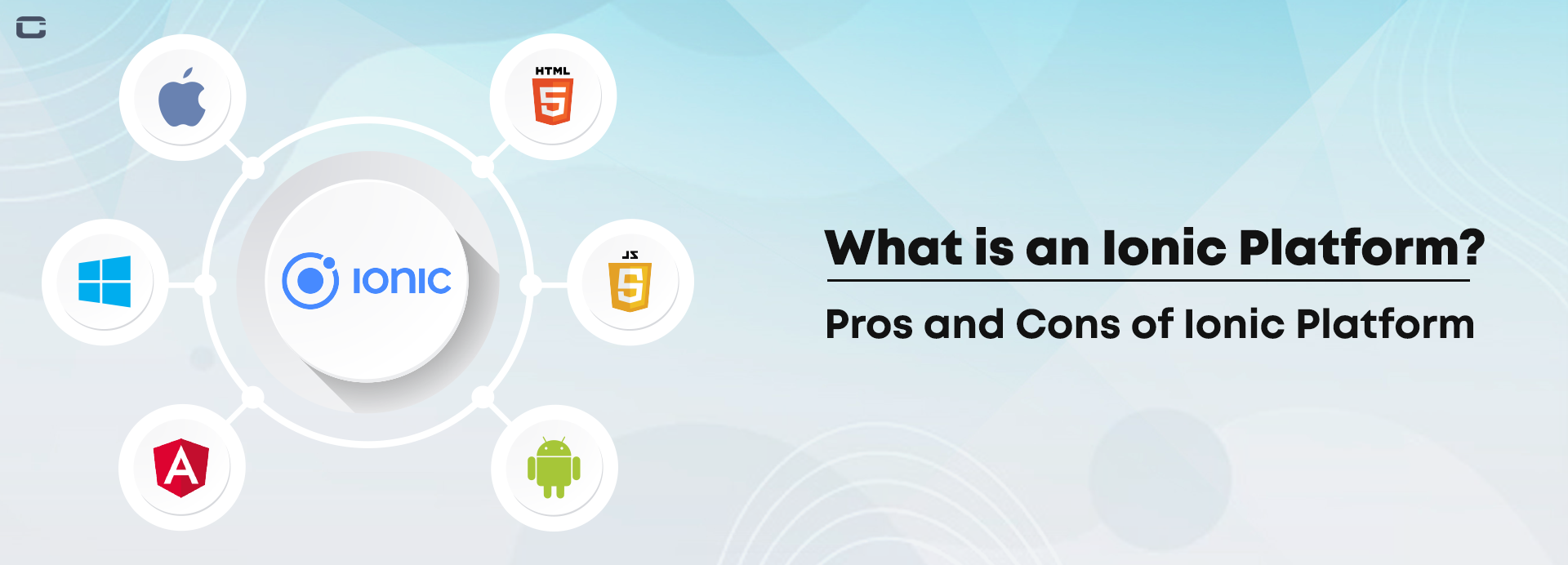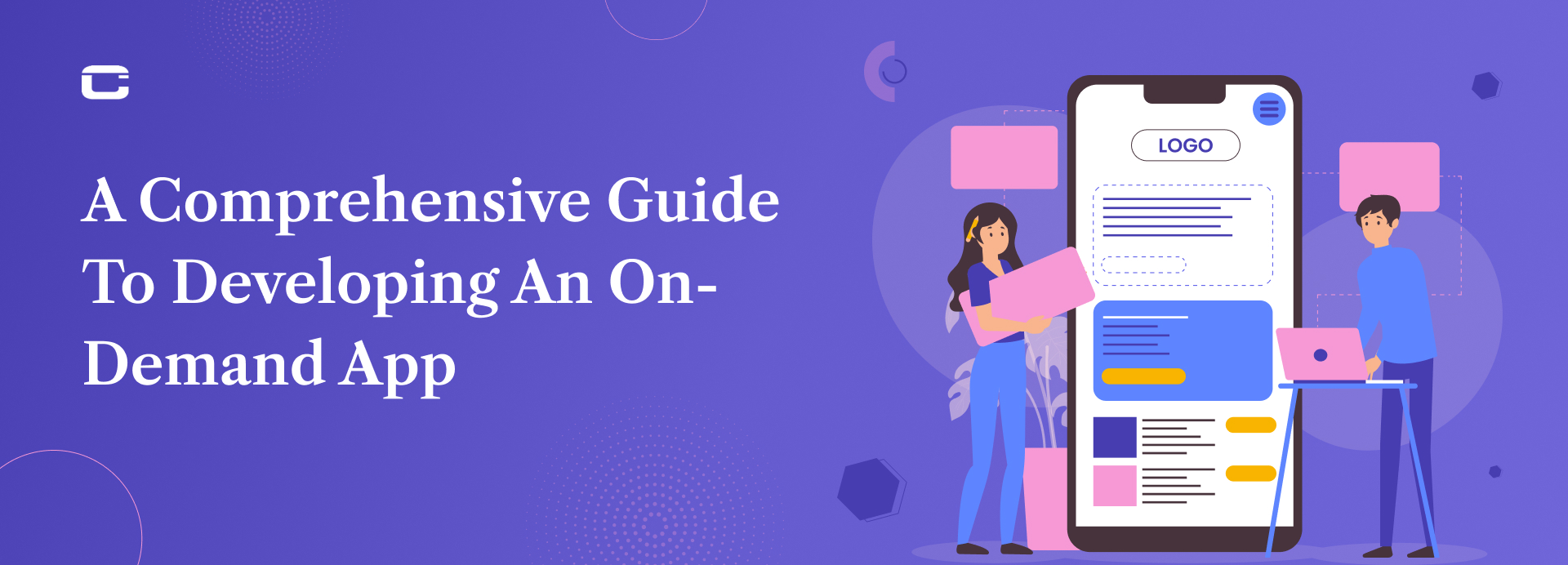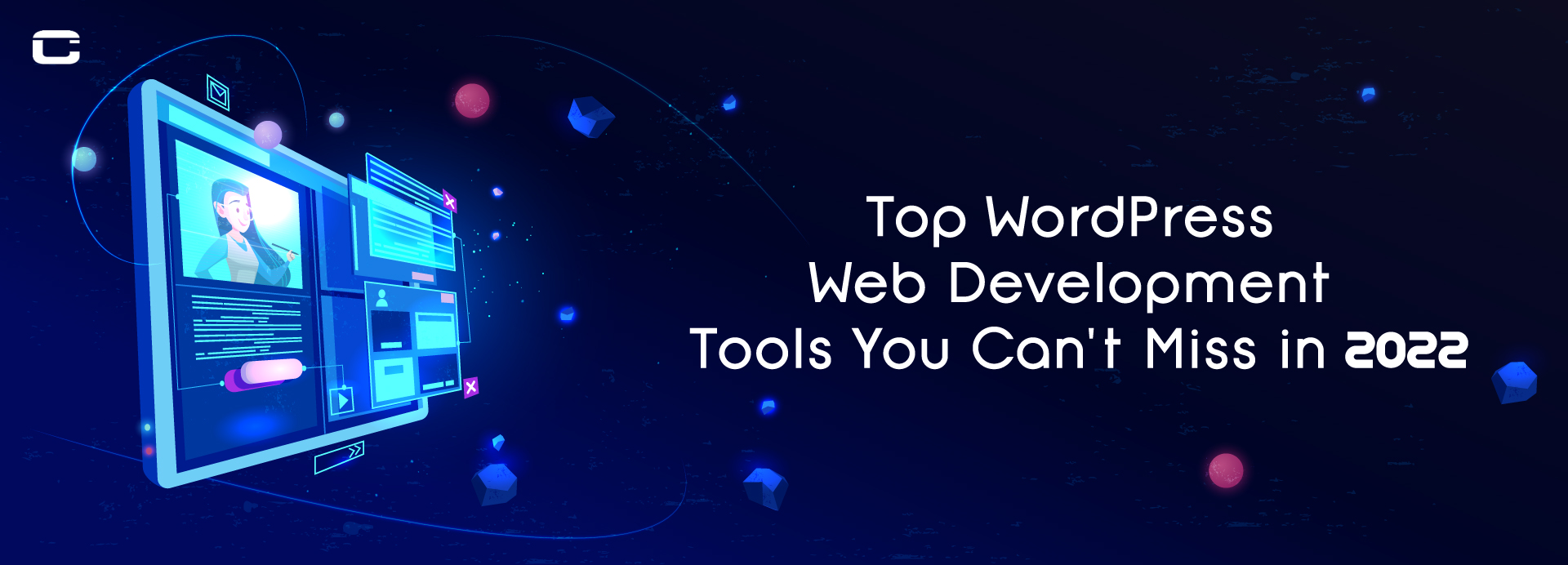Businessmen all over the world desire to have an outstanding application in both the major platforms, that is iOS and Android. But they usually get stuck mid-way trying to pick the best-suited technology they can use to launch their app on both platforms. They come across questions like what mobile development to go with? Native app development or hybrid app development!!!
If they choose hybrid mobile app development, which framework to choose? Flutter, React Native, or Ionic!!! No matter what technology you choose for the mobile app development for your business, each one of them has its own pros and cons. Getting an insight into this list of pros and cons will help you choose the right development technology for your business.
To help you make your decision, we will talk about one of these cross-platform frameworks in this post that is an Ionic platform, as well as know the pros and cons of that platform.
But before jumping into that, let’s get a basic understanding of Native and hybrid app development.
What is Native App Development?
Native app development is the process of creating applications using software programs that support specific platforms and devices. You can develop native apps for all kinds of smart devices such as smart TVs, desktops, etc. The most targeted of all are smartphones though. These apps do not run in web browsers, you are required to download them from a platform-specific app store like Google Play Store for Android and Apple’s App Store for iOS devices. Developers need to write different codebases using the platform-specific language for each platform (Swift or Objective-C for iOS and Java or Kotlin for Android), which takes a longer time and more effort, but at the same time, delivers a better user experience.What is Hybrid App Development?
Hybrid app development is a blend of both native and web solutions, thus the name hybrid. These apps are cross-platform in nature, meaning they are developed for multiple mobile platforms. Hybrid apps are compatible with multiple operating systems and run seamlessly on the platform that users prefer. They are created using a single codebase for all platforms, unlike native apps. Developing a hybrid (cross-platform) mobile app is a must if you are a startup or you are on your early-stage ventures. When you develop an application that users can access on any platform, you make sure that your software is reachable by your potential customers.
When you choose to go with Hybrid cross-platform app development, you will again stand at a crossroads trying to decide which cross-platform framework to go with. There are quite a few hybrid app development frameworks available in the tech world, today we will be talking about one of the most popular frameworks which is the Ionic platform also you will get to know about its pros and cons. As well as, why you should choose Ionic as your hybrid cross-platform app development.
What is Ionic Framework?
Ionic Framework is an open-source UI toolkit used to develop mobile and Progressive Web Applications (PWA) using programming languages like CSS, HTML, and JavaScript. Ionic is not new to the app development world, it was created by the Drifty Co. in the year of 2013. There are more than 5 million apps built using Ionic. The original version of Ionic that was launched in 2013 was built on top of Apache Cordova and Angularjs. However, they launched another version in 2019 that supports multiple front-ends.
Ionic is popular for providing platform-specific user interface elements for iOS and Android through a library of native components. A developer is only required to know web technologies such as HTML, Angular, and CSS to develop an app with an Ionic framework. A single code written in programming languages HTML, SaaS, and Angular will remodel into a mobile application. Cordova will be responsible for enforcing a native part of the mobile app.
An app that is built using the Ionic Framework is considered a cross-platform application. These apps are built like a web app but permit to generate a native app with entry to all the functions that are phone-specific. They are not completely native or web-based. Developers do the layout through web views, but the application is allowed entry to the native device’s APIs. The catalog of elements that Ionic comes with is able to change their appearance to give a native-app an experience according to the platforms iOS, or Android. The developers are still allowed to customize the app to make it look however you want.
You get various kinds of plugins with Ionic that allows you to interact with smartphone hardware, kudos to Ionic Native/Cordova. All you need to do is make sure that you choose the plugins that are available for the platforms you are getting your app developed for and are maintained well.
Pros of Ionic Framework
Quick development and time to market
Ionic development is beneficial for business owners if they are looking to build a mobile application for both platforms in a short span of time. Developing native apps specifically for each platform consumes a lot of time which means a delay in time to market, moreover the development cost of native applications is higher than that of applications developed using Ionic.
Browser support-web view
The ionic framework offers browser support for applications similar to PWAs which can help marketers. Whereas, developers can develop mobile apps with the knowledge they have of Angular using web-views in the browser. There is no need for IDEs or any kind of editors that developers require, all they need is web-views to build the layout of the app.
JavaScript-based
As Ionic development requires simple web technologies like JavaScript, Angular, CSS, and HTML; you need not hire developers who have a command over other web technologies. If you already have web developers in-house who are well equipped with the languages mentioned above, you would not even need to train them with any new technologies to build an app for both the platforms (iOS and Android).
A deluge of UI components
Ionic Framework has ample plug-ins and UI components to make the app development seamless. It allows the developers to add to their productivity and decrease the development time by providing them with the best plug-ins.
Native plug-ins
Developers can get access to the native device’s APIs with the native plug-ins that are available to offer the best customer experience to those who use your application. The mobile app allows the app developers to get the best of native elements using these native plug-ins for both iOS and Android platforms.
In-depth documentation and support
Ionic Framework offers in-depth documentation and support. The Ionic native framework team provides continuous support and updates. As Ionic is an open-source framework, it is supported by the best contributors and developers around the globe. So any time you have a query, you can get it resolved in the Ionic developer forums.
Cons of Ionic Framework
Native plug-ins are not stable
The availability of several native plug-ins in the Ionic development does not change the fact that the app developers spend a rough time trying to look for the native plug-ins that are stable. Choosing an unstable native plug-in can invite more trouble and errors while the app is being built.
Complicated debugging
The reviews that the Ionic developers gave depict that it is very difficult and complex to spot errors in the Ionic native framework.
Unsuitable for game development
It has been discovered that Ionic mobile app development is only suitable for the development of business applications and not game development because it requires high definition graphics and animation.
App security
The apps developed using the Ionic framework do not have the best security. It is advisable you provide security services to deal with security problems for both native and web mobile apps.
Hot reloading is not available
Among the other techniques that are used to add changes to your code, hot reloading is treated as a standard feature. You can make changes using hot reloading without having to reload the whole application. It takes time to get used to Ionic as it does not offer hot reloading, it used live reloading instead.
Size of the application
An application developed using an Ionic framework is heavier than if it were a native app as the developers use CSS, JavaScript, and HTML while writing it, this means they have to write a lot of code and add libraries, use plug-ins, etc. However, in version 4 of Ionic apps, this issue has been solved partially.
How is the Ionic Framework helpful to you?
If you are a business owner
- You can easily cut the costs using Ionic since you do not require to hire a developer for every platform. You do not have to train your employees on new technologies. The ionic framework uses well-known web technologies.
- Developing your app with the Ionic framework will save you time as well, you do not have to develop an app for every platform. With Ionic, you can develop only one app backed by simple web technologies.
If you are an app developer
- With the plug-ins and UI components that Ionic Framework provides, you can make your application look professional.
- You get the complete documentation and support.
- You are not required to know every programming language for the development of mobile apps while developing an app with Ionic.
- Whenever something does not work, you can simply ask for backup for an enterprise or turn to the Ionic developers’ community for help.
Is it Worth it to Develop Apps using the Ionic Framework?
An ionic framework is a tool that allows developers to create a cross-platform app with web technologies. A developer can develop a cross-platform app with a single codebase. Nevertheless, an application developed using the Ionic framework requires more security features than a native app, but a developer with solid mobile app development skills will be able to handle it without any difficulties; like the mobile app developers, we have at Cypherox.
Apps built with the Ionic framework do not have any more risk than a native app or a web app. With Ionic, you can create apps with less effort & in less time, at the same time, they are fully functional. Ionic framework is a good choice when building apps for more than one platform and web apps simultaneously.
The success of your app relies entirely on your users, so you need to make your app to fulfill your users’ expectations. We can help you with that. At Cypherox, we have a team of experienced and highly talented developers who can develop your language learning app just like Duolingo and make you the next Luis. With the skills of our developers, we can even build the app faster for you. If you want to build such a language learning app, you should contact an experienced company offering language learning app development services like Cypherox.






